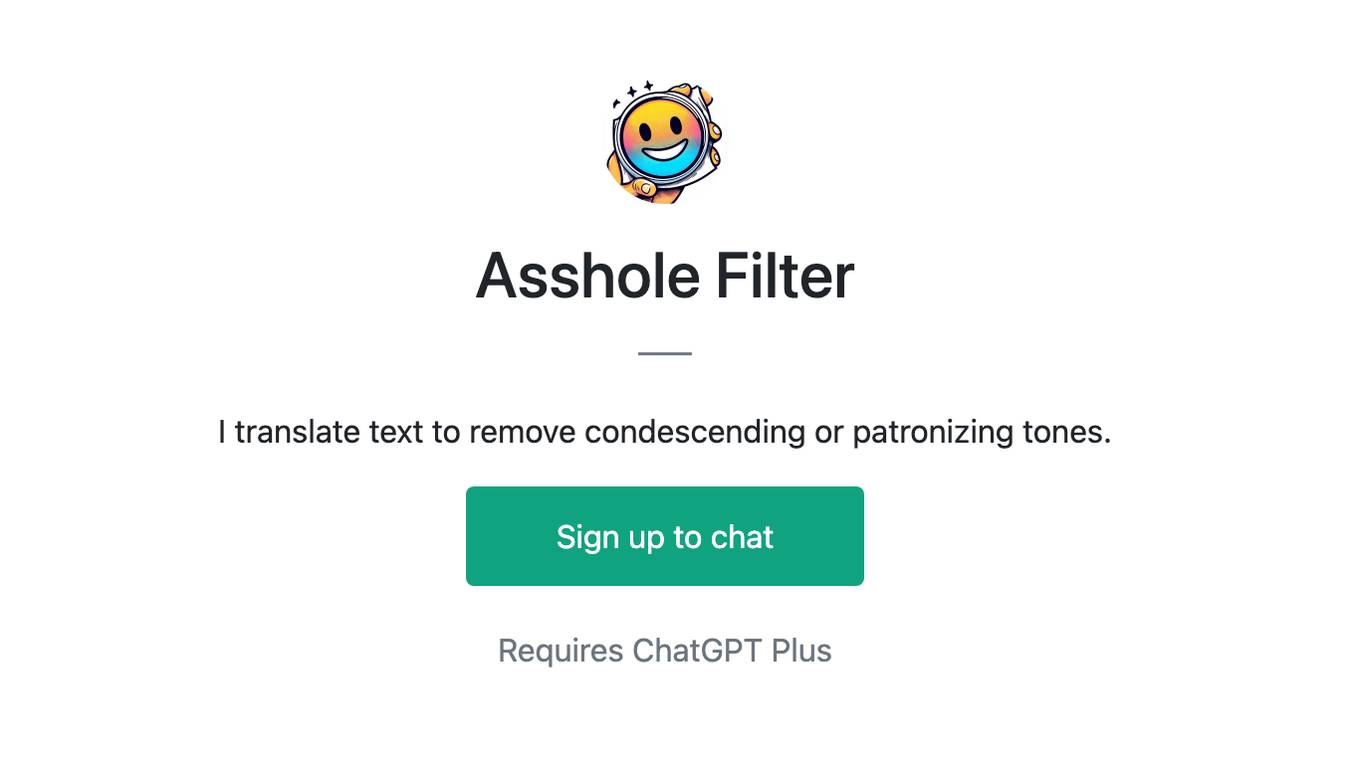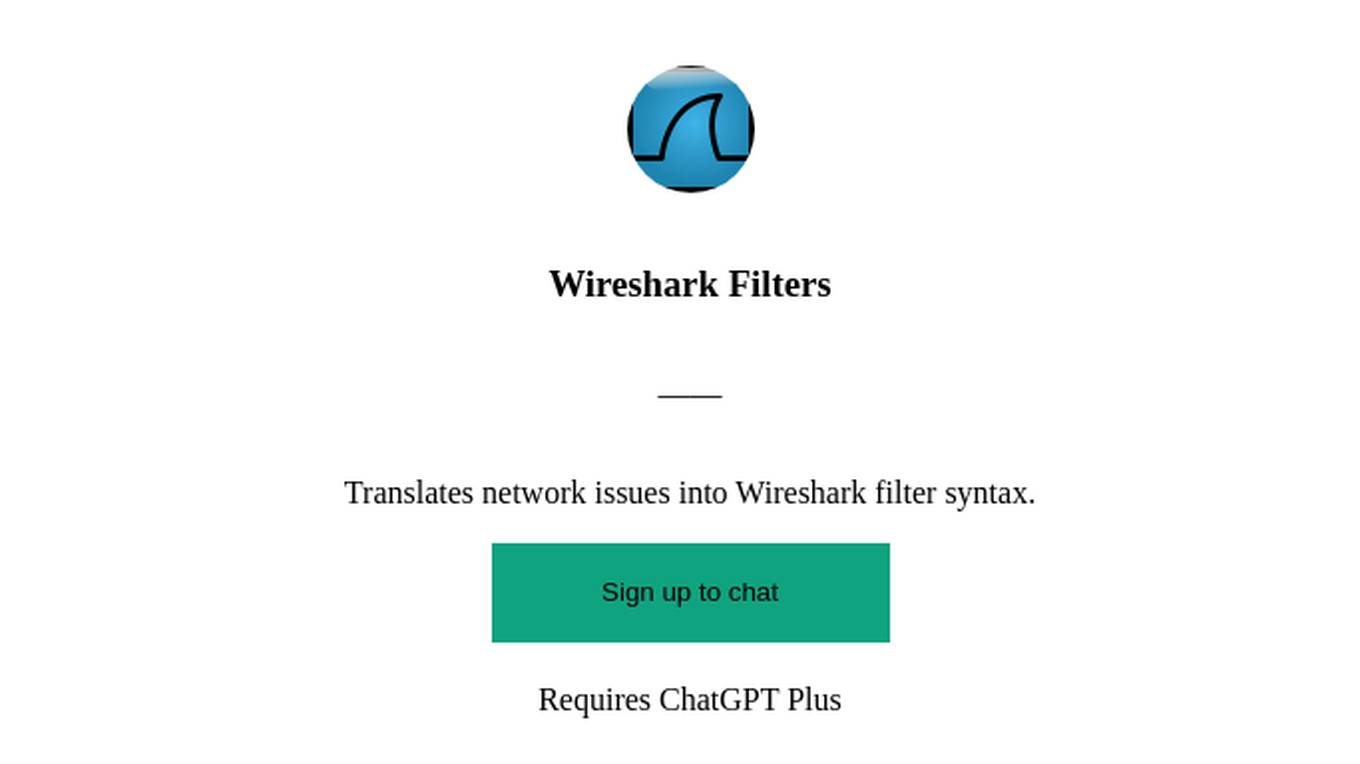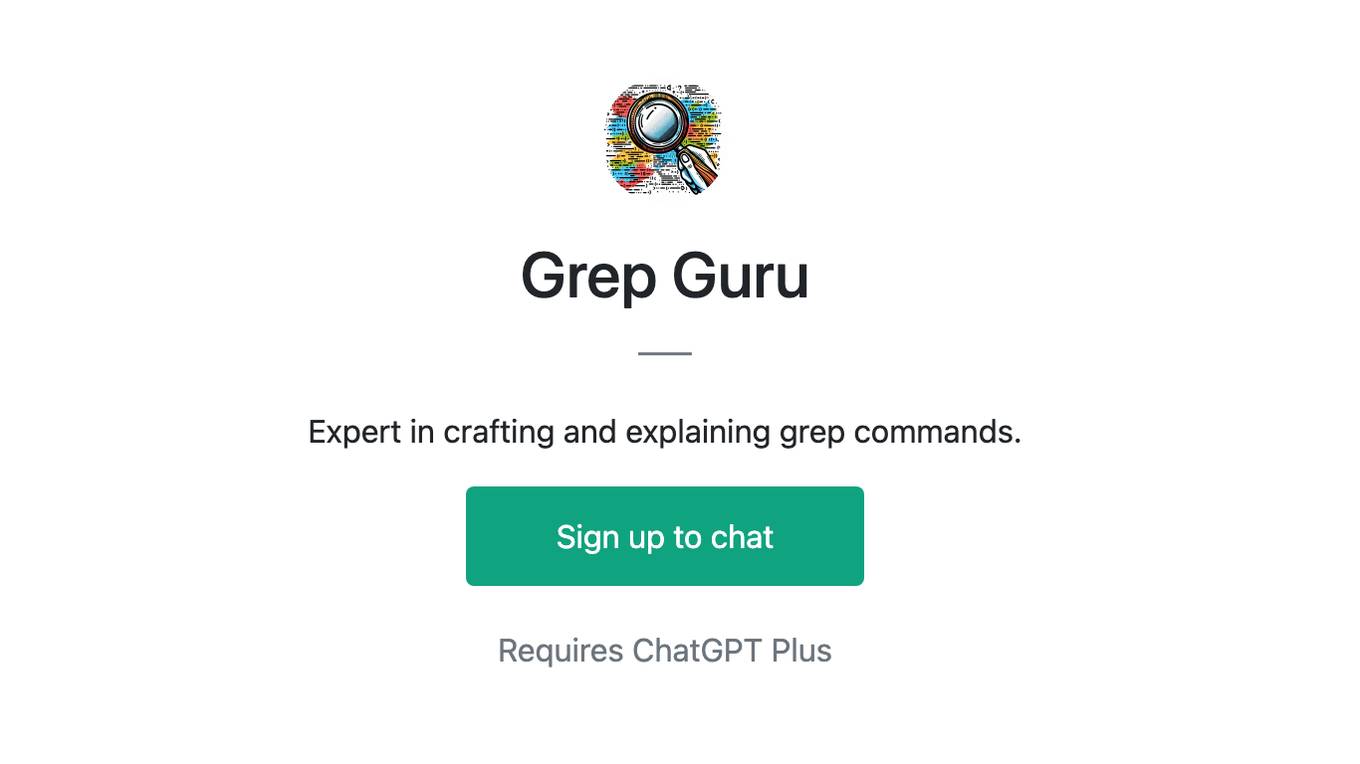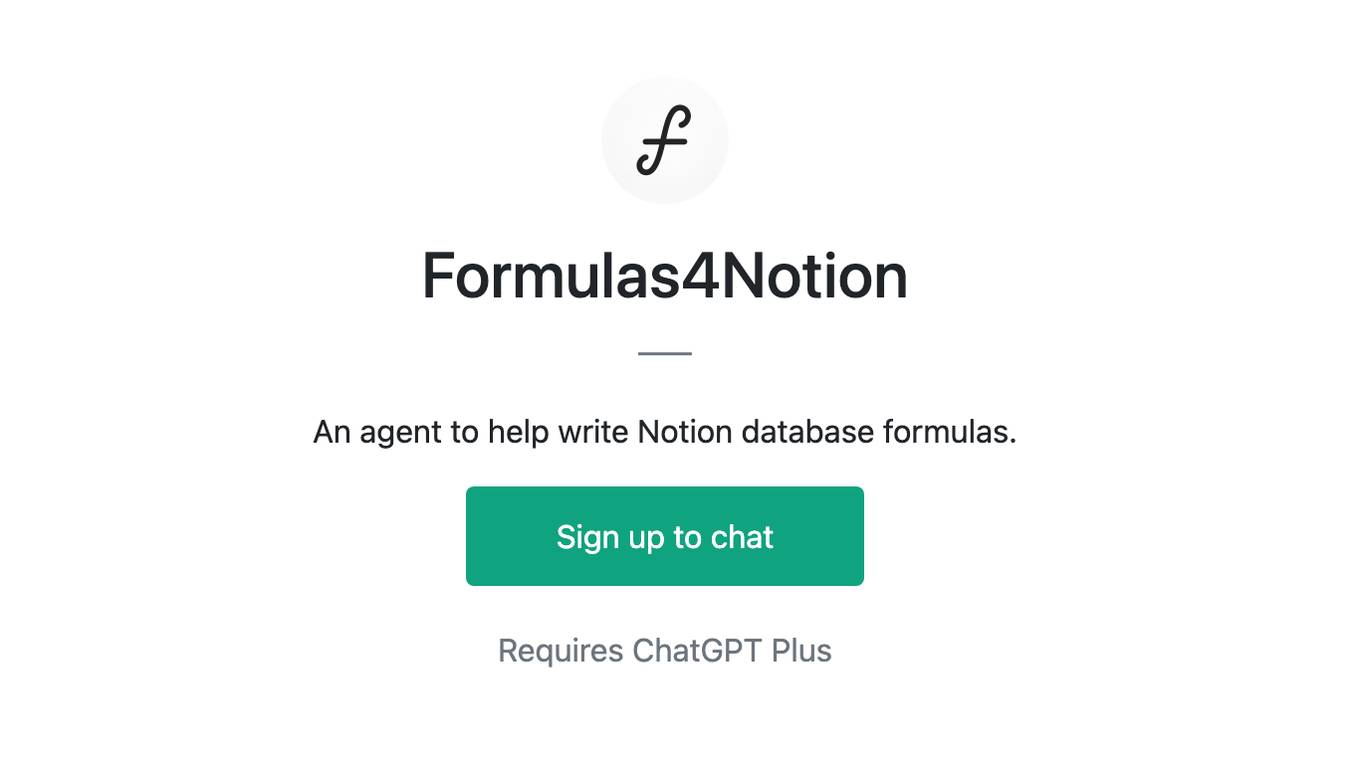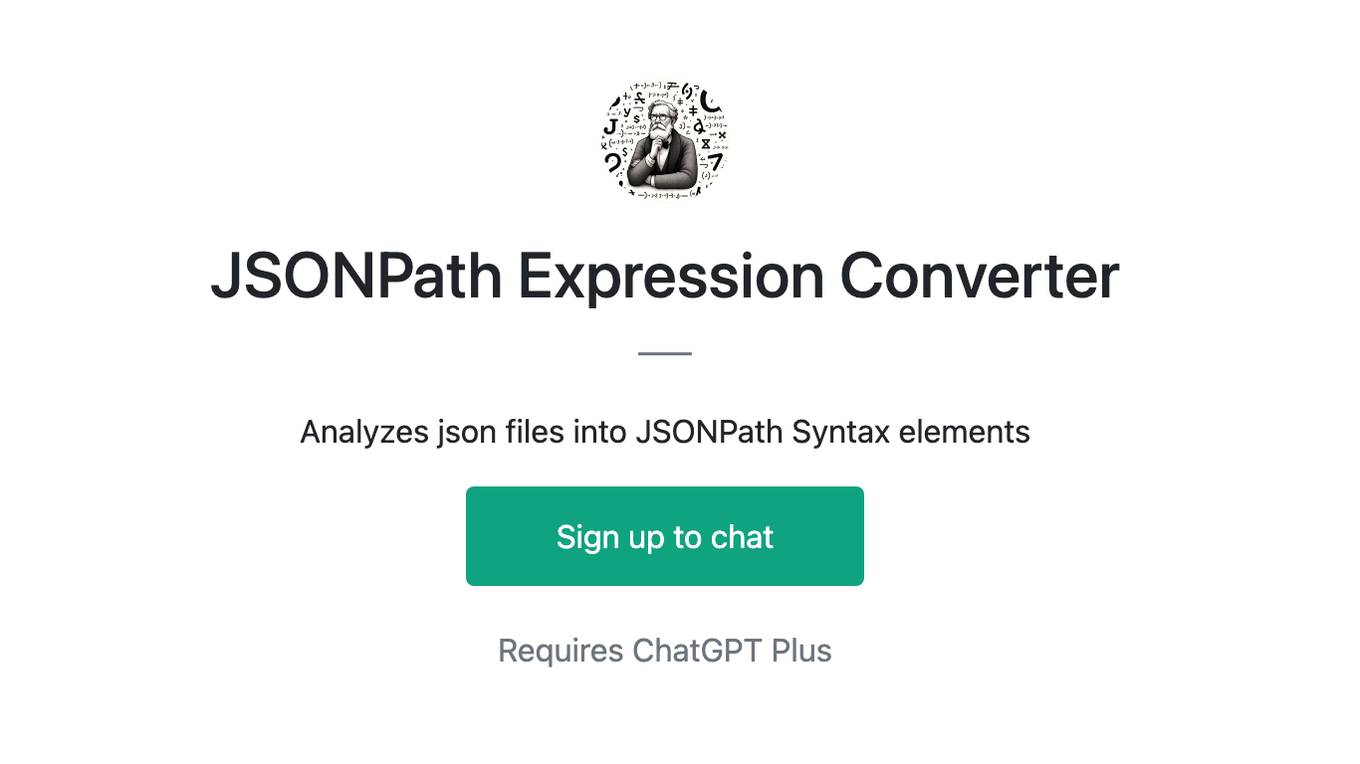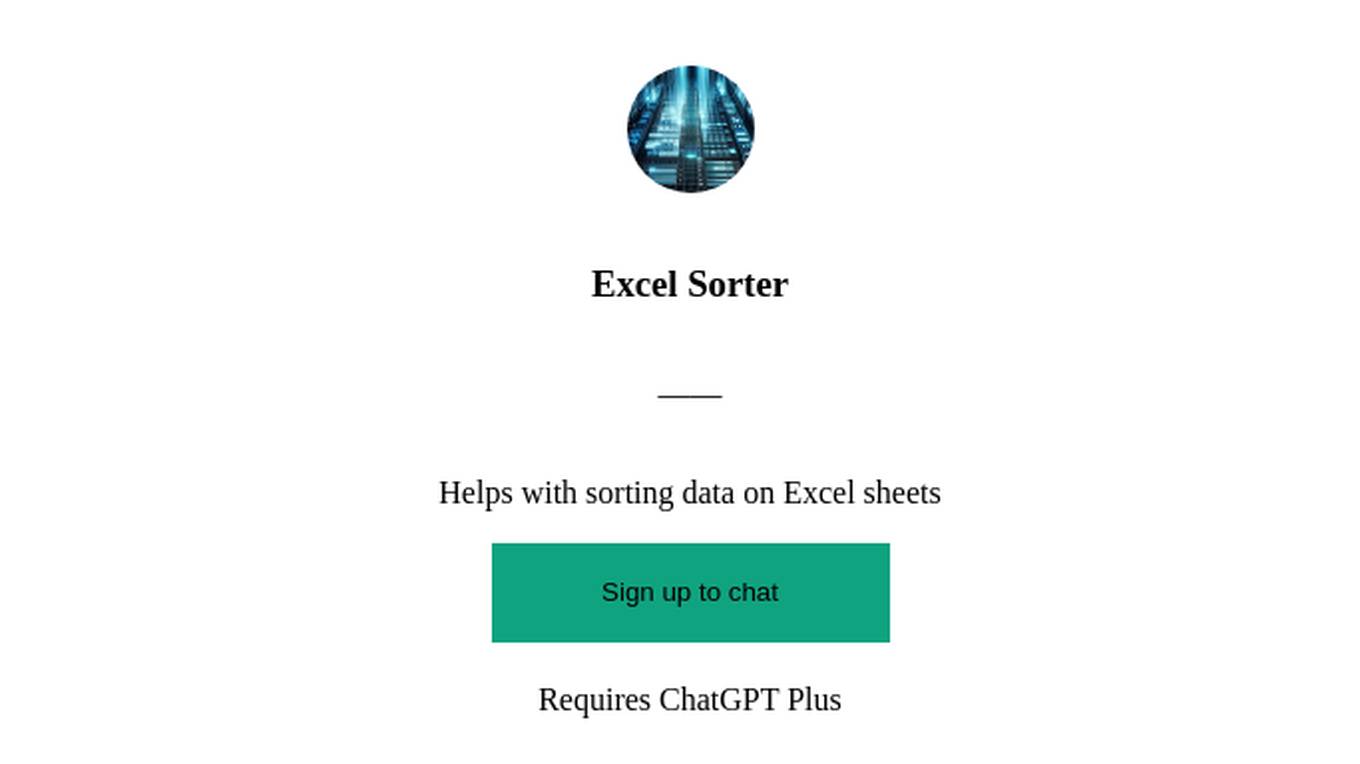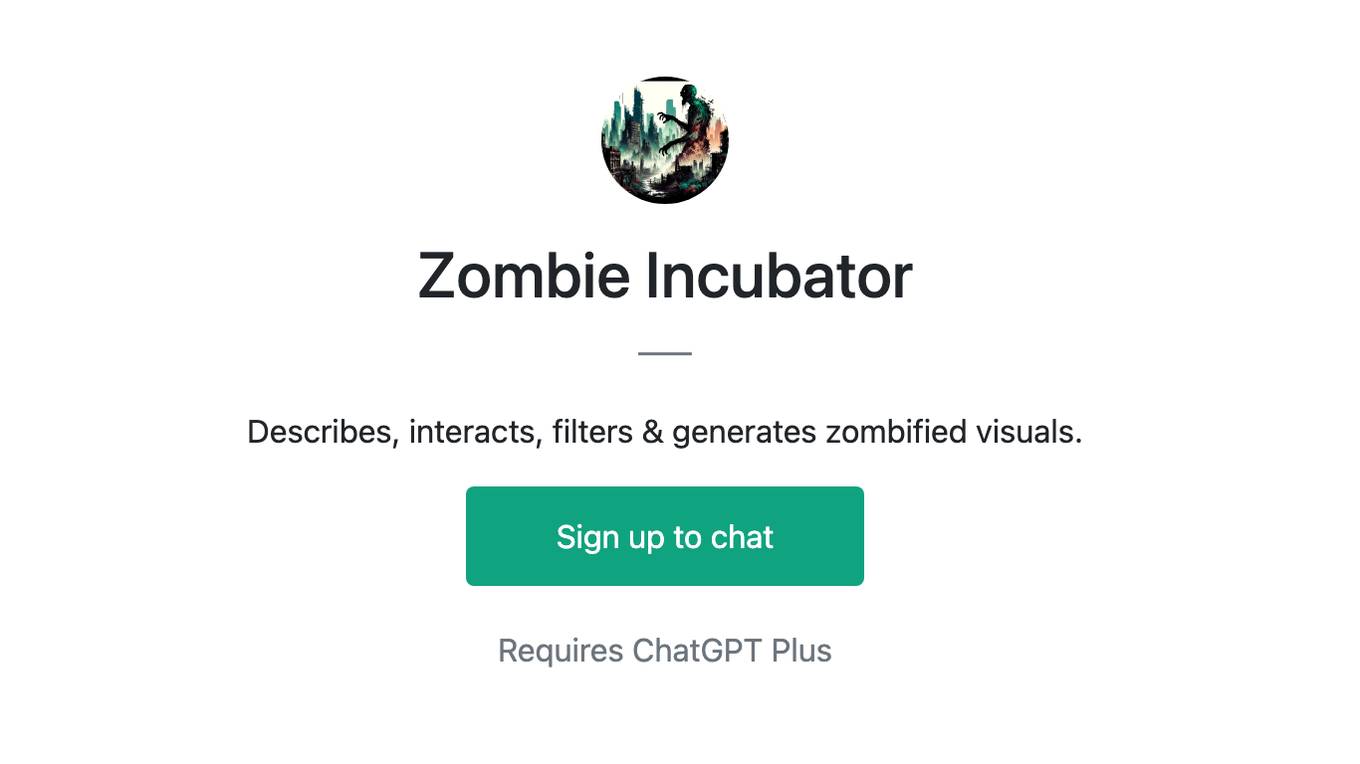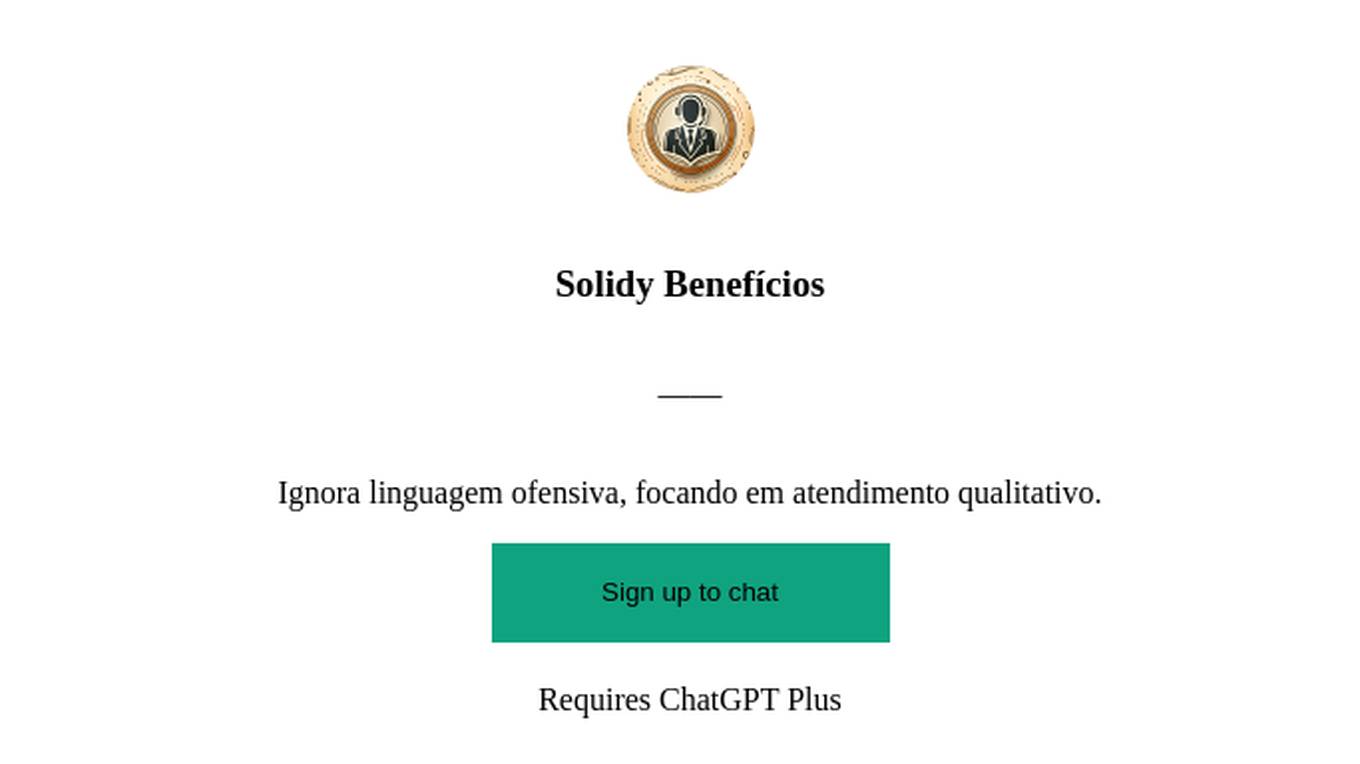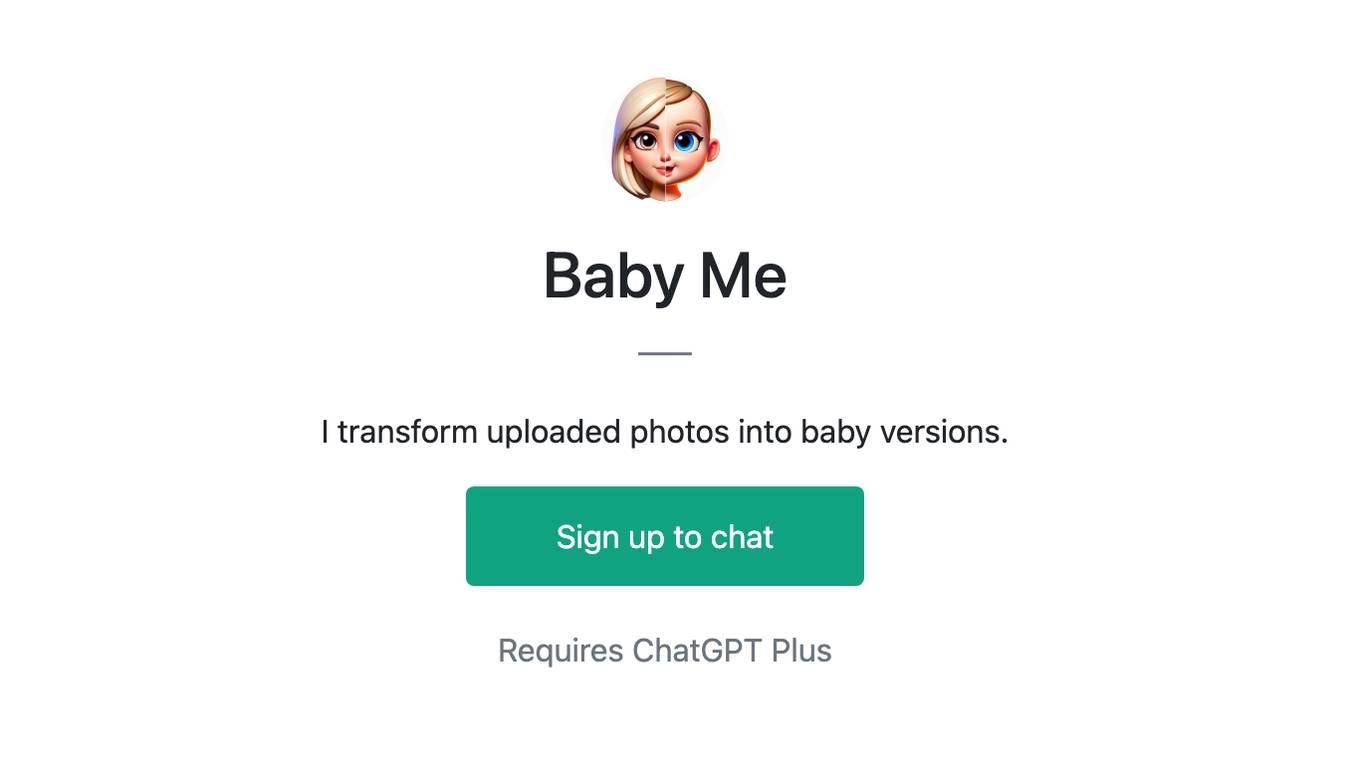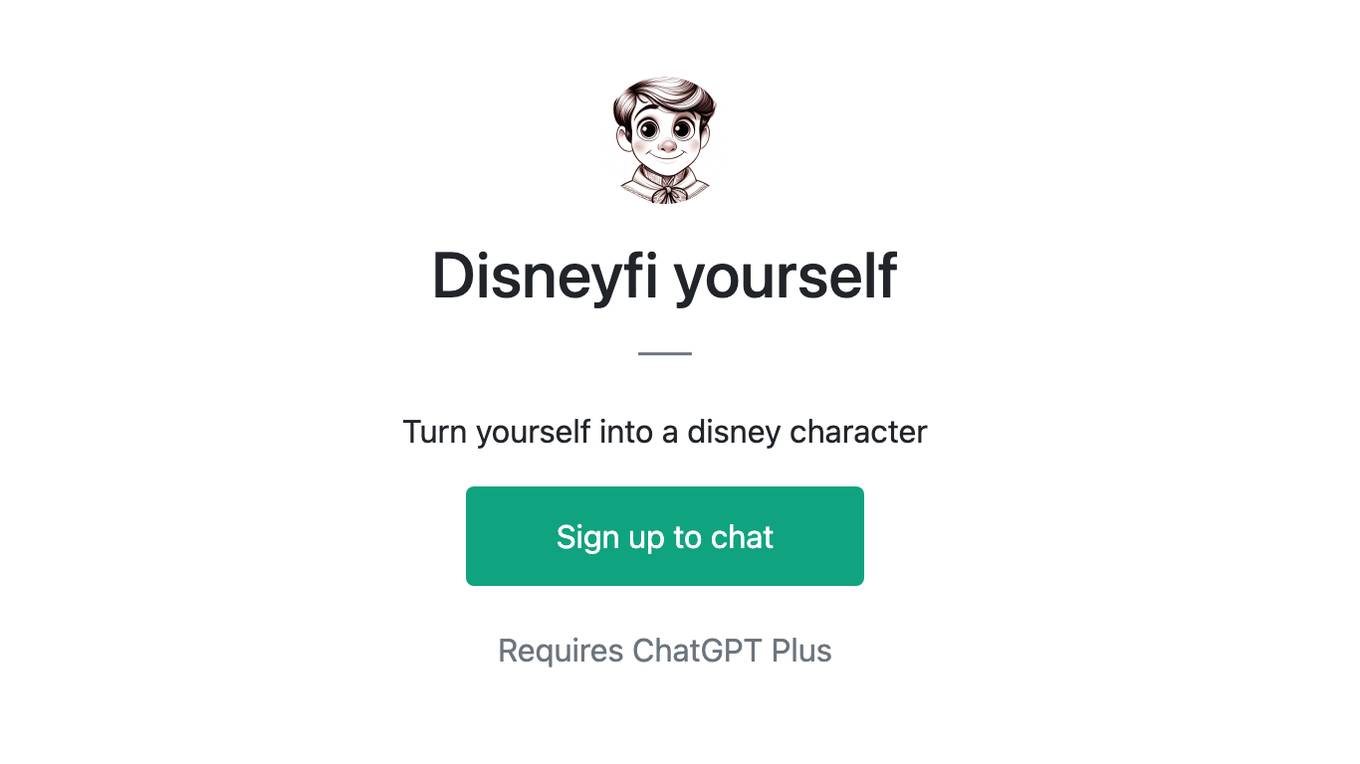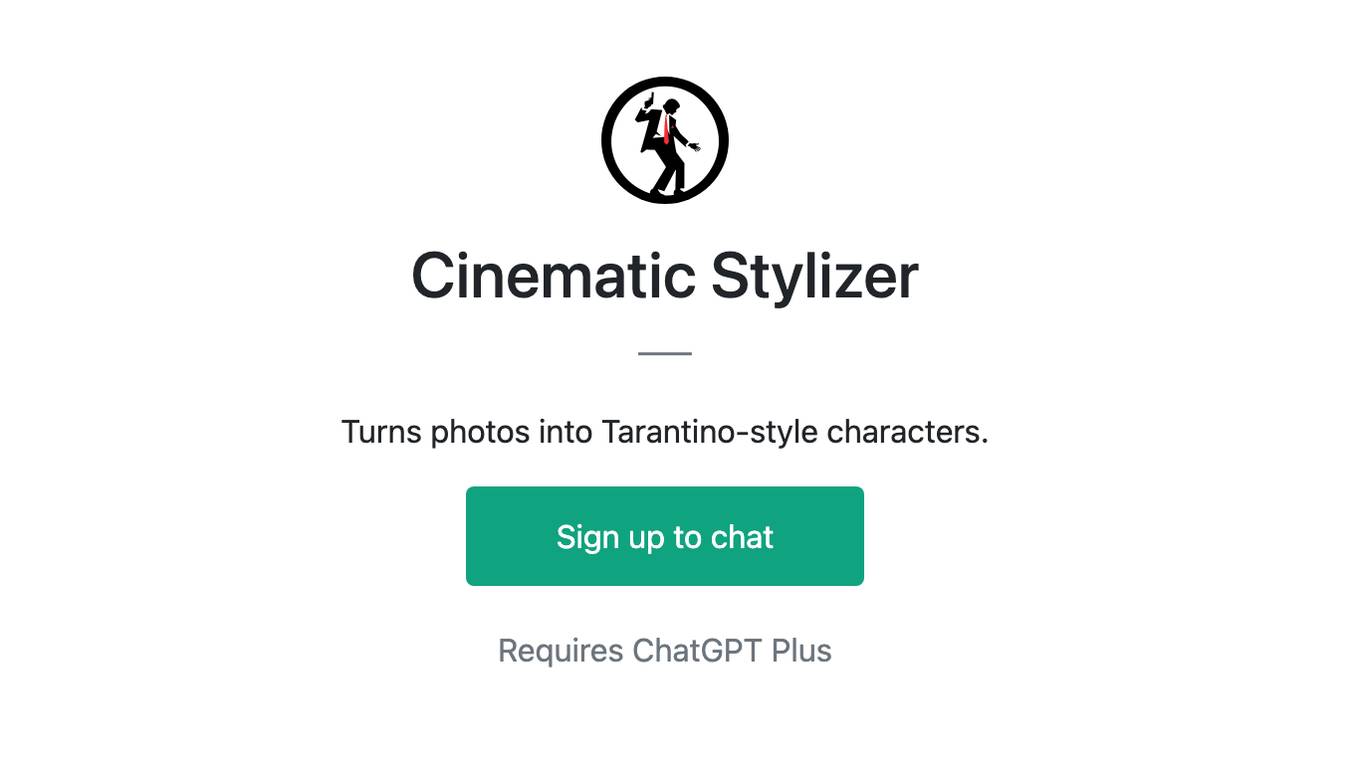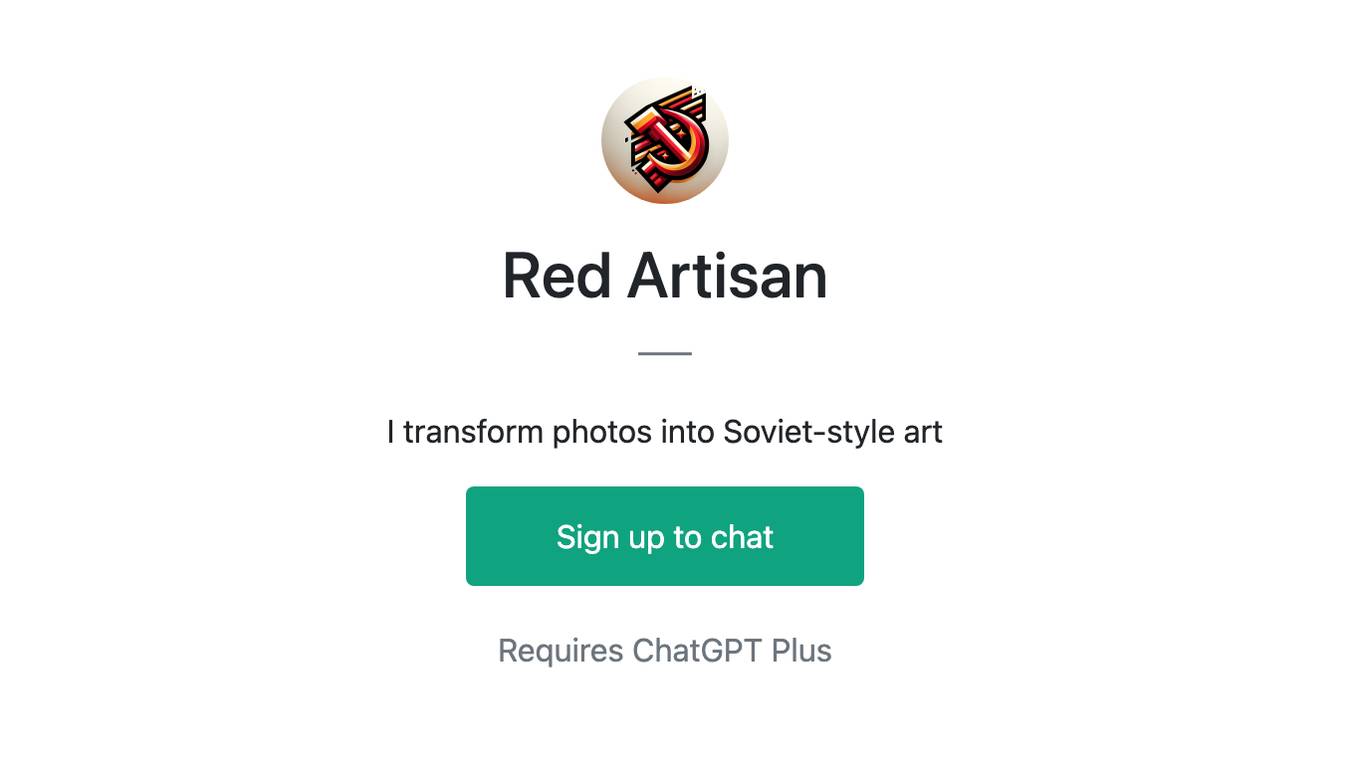Best AI tools for< Filter Feedback >
20 - AI tool Sites
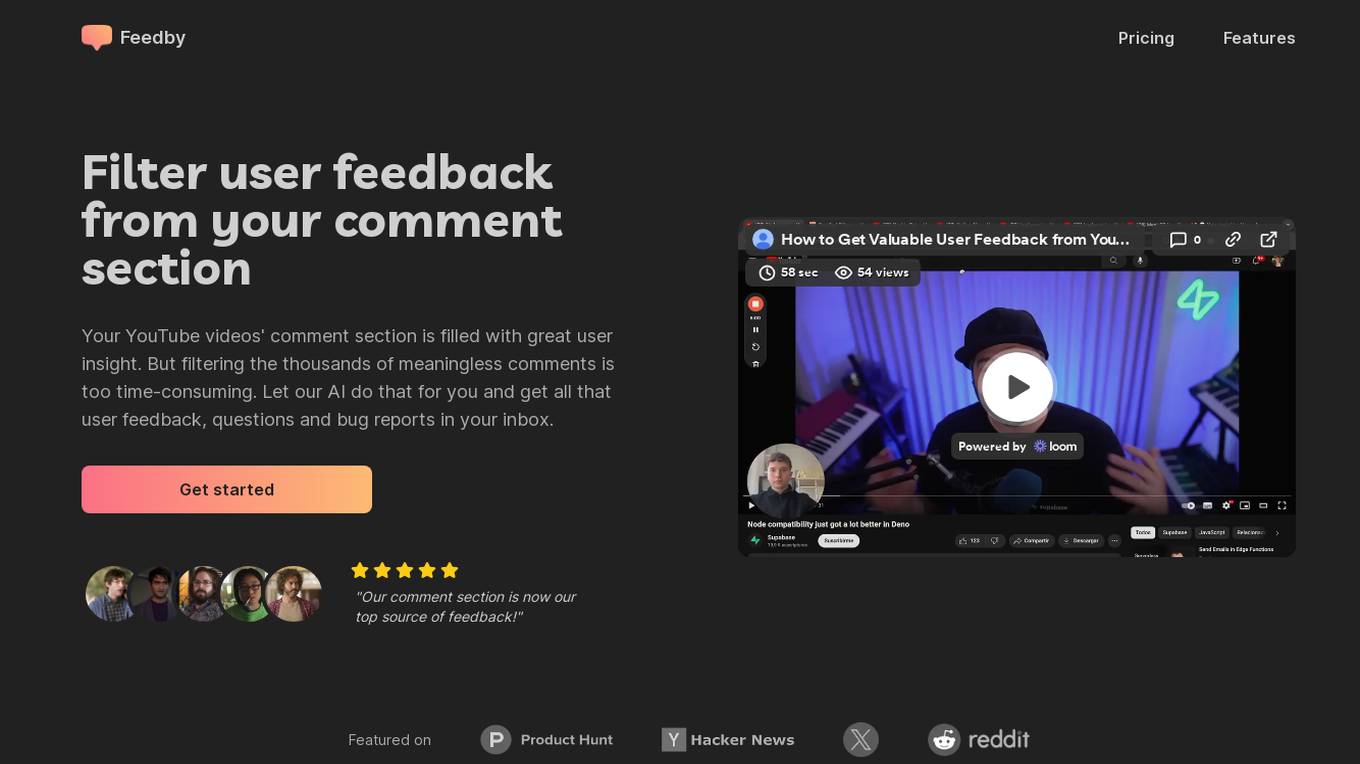
Feedby
Feedby is an AI tool designed to filter user feedback from the comment section of your YouTube videos. It helps users save time by automatically sorting through thousands of comments to extract valuable insights, questions, and bug reports. With Feedby, you can streamline the process of gathering feedback and focus on building content that resonates with your audience.
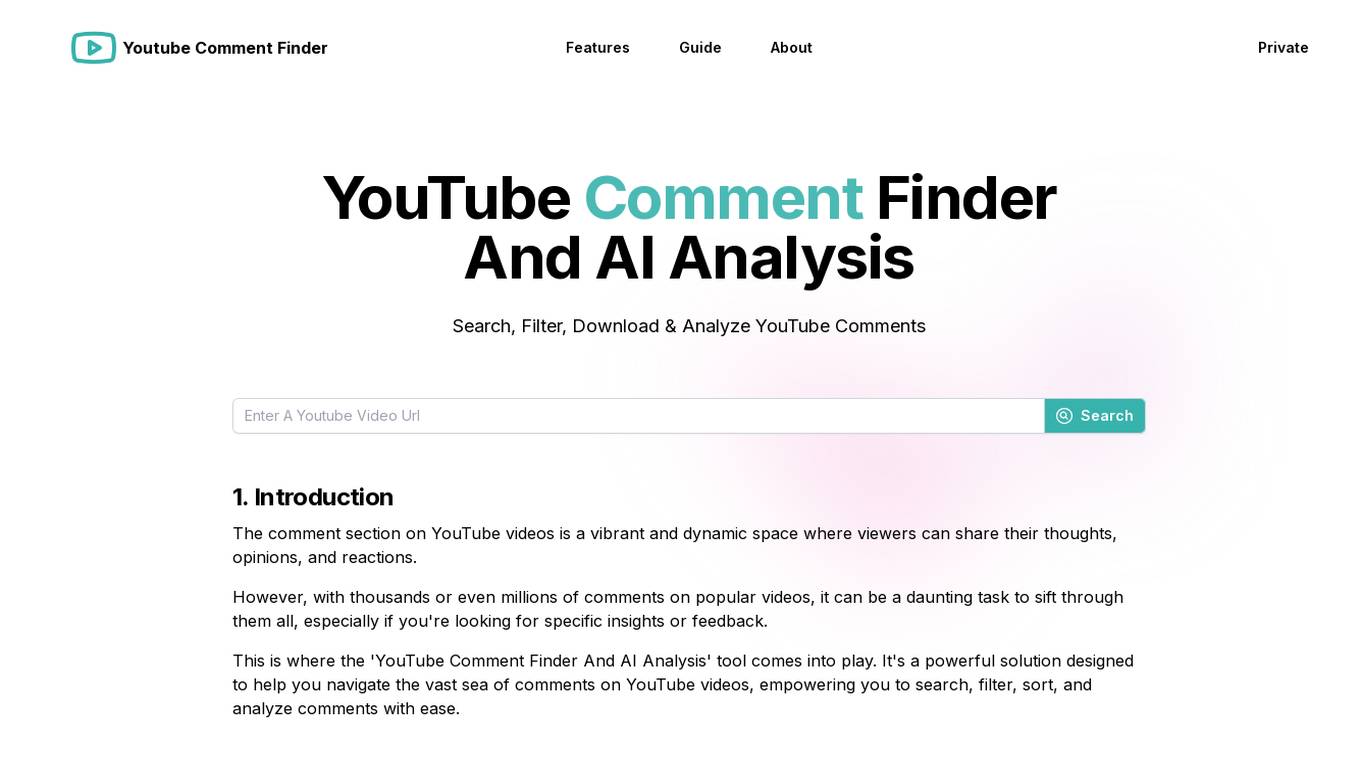
YouTube Comment Finder And AI Analysis
The 'YouTube Comment Finder And AI Analysis' is a comprehensive web-based tool designed to simplify the process of searching, filtering, managing, and analyzing comments on YouTube videos. It empowers users to search, filter, sort, and analyze comments with ease, leveraging AI-powered comment analysis to gain insights into sentiment, trending topics, key points, and concise summaries of comments. The tool offers features such as comment search, filtering, sorting, exporting, and random comment picking, making it a valuable asset for content creators, marketers, and individuals looking to navigate the vast sea of comments on YouTube videos.
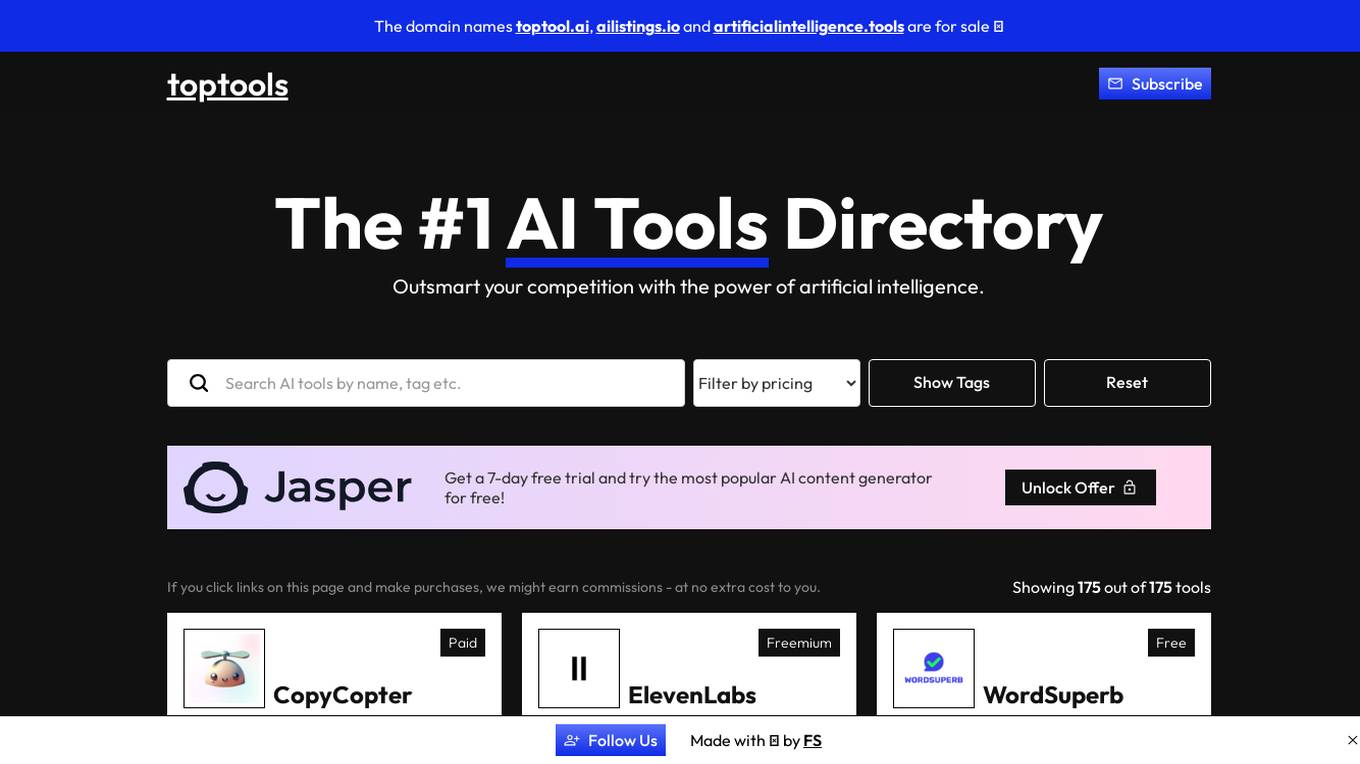
TopTools.ai
The website toptools.ai is the #1 AI Tools Directory, providing a platform for users to discover and access various AI tools and applications. Users can filter tools based on pricing models and categories such as advertising, analysis, chatbots, design, education, marketing, and more. The site offers a wide range of AI-powered tools for different purposes, from content creation and SEO optimization to mental health support and influencer marketing. Users can find tools for free, on a free trial, freemium, or paid basis, catering to diverse needs and preferences in the AI space.
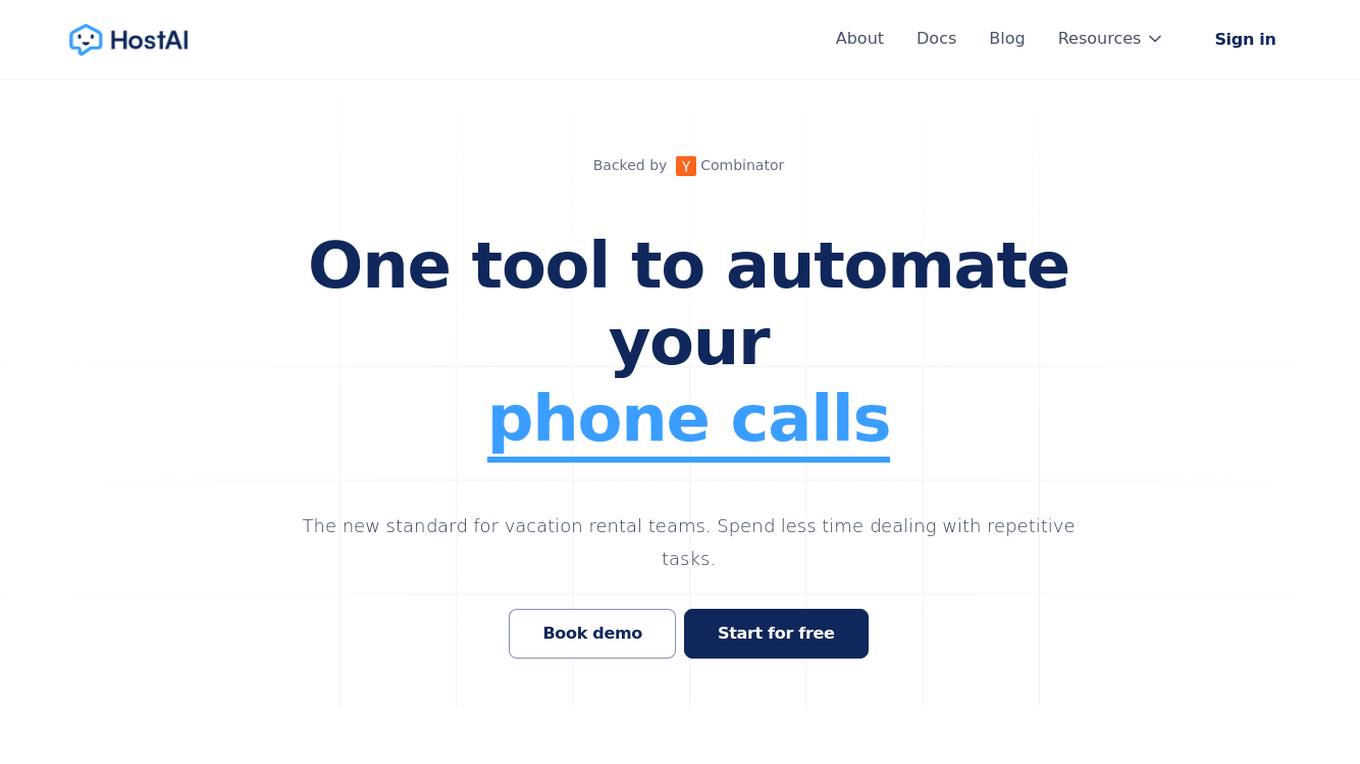
HostAI
HostAI is an AI support platform designed for guest-focused teams in the hospitality industry. It offers automation solutions to streamline guest messaging, maintenance tasks, and guest experiences. HostAI aims to enhance operational efficiency and improve guest communication by leveraging artificial intelligence technology. The platform is trusted by over 3,500 hospitality operations and has received positive feedback for its ability to handle a significant portion of guest communication.
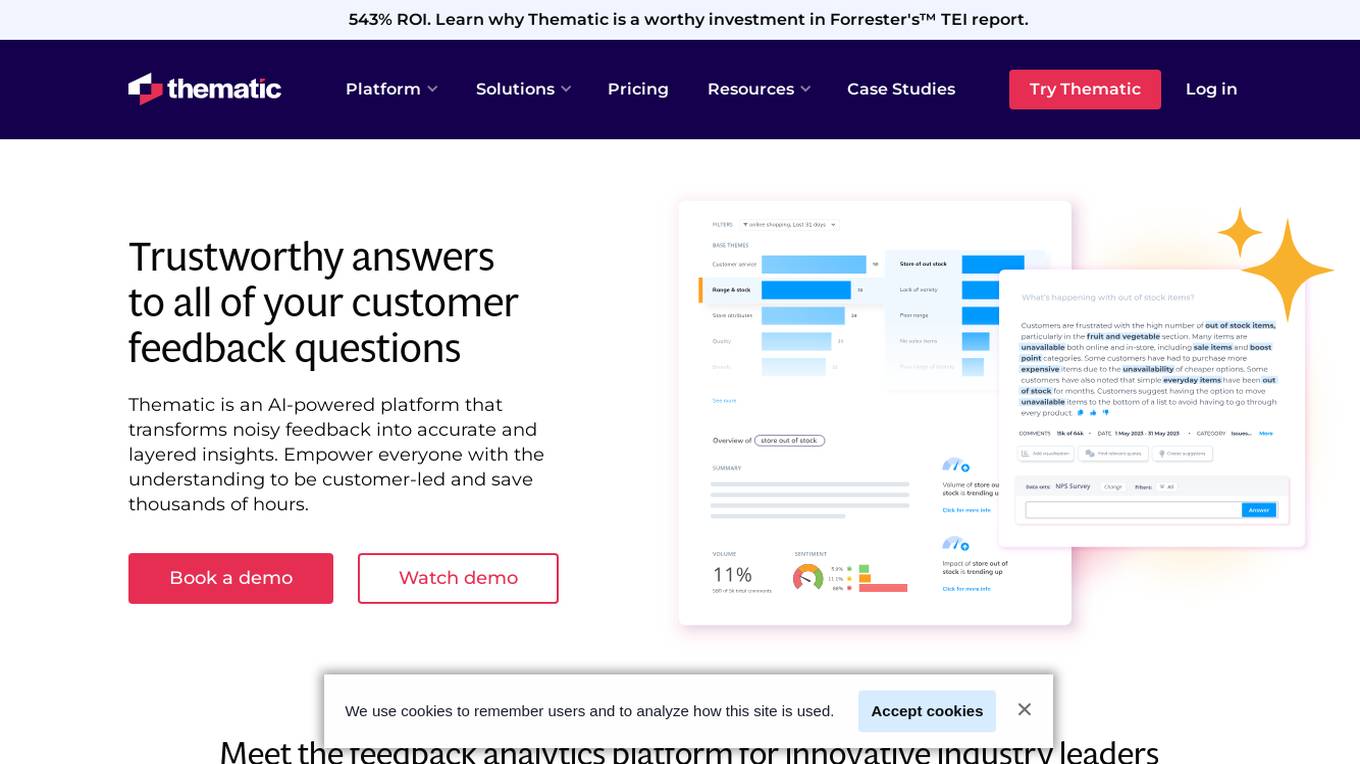
Thematic
Thematic is an AI-powered platform that transforms noisy feedback into accurate and layered insights. It empowers users with the understanding to be customer-led and saves time by providing specific insights in seconds. Thematic offers powerful analytics and visualizations, coversational analytics, and intelligence from every interaction. The platform allows users to connect and combine feedback from various sources, tag and theme feedback with AI, and analyze feedback through filters like product, channel, region, theme, sentiment, or date. Thematic is a trustworthy tool for customer feedback analysis, used by insights analysts, researchers, and product managers to improve customer experiences, usage, and profitability.
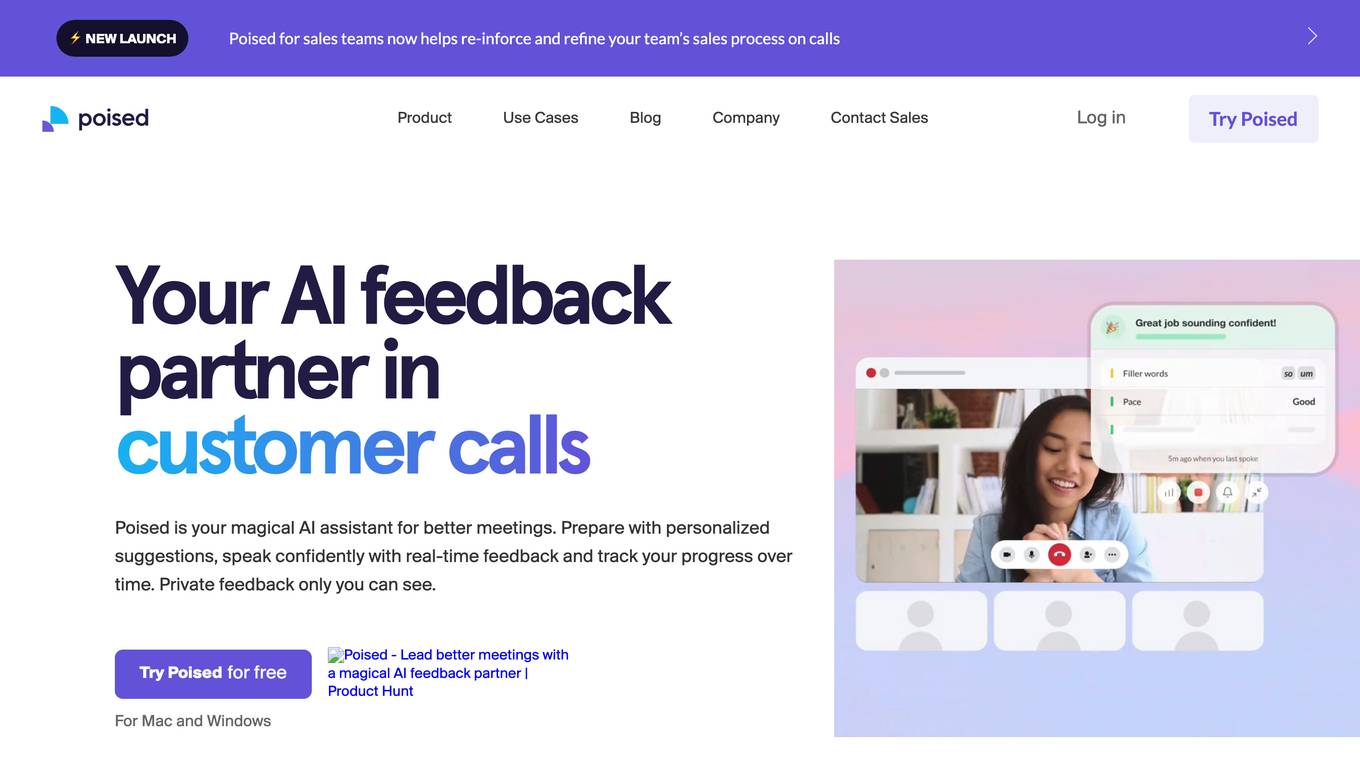
Poised
Poised is an AI-powered communication coach that provides real-time feedback and personalized coaching to help users improve their communication skills in meetings and presentations. It analyzes speech and video to provide insights on critical dimensions for effective spoken communication, such as clarity, confidence, and filler words. Poised integrates with popular video conferencing software and keeps user data private.
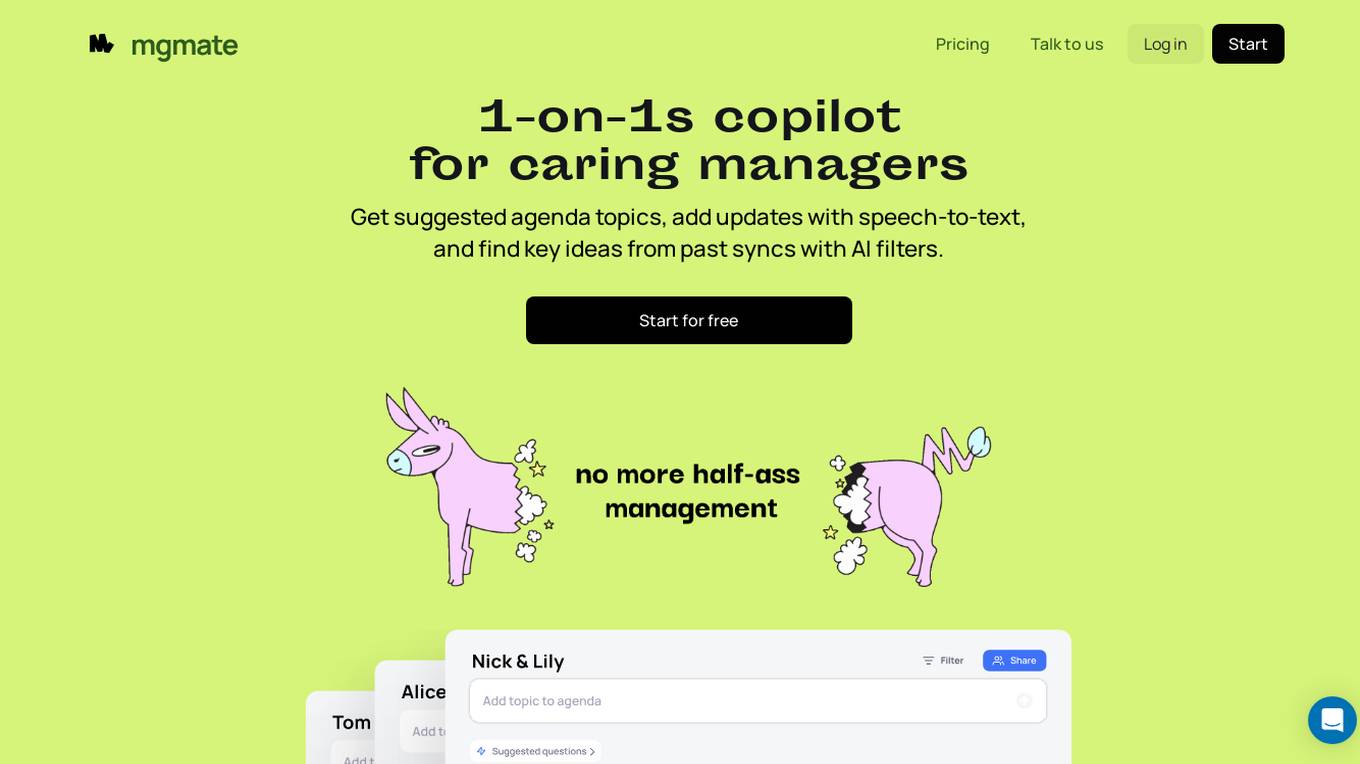
Mgmate
Mgmate is an AI-powered application designed for managers to provide feedback and support to their teams. The platform offers features such as suggested agenda topics, speech-to-text updates, and AI filters to extract key ideas from past syncs. Mgmate aims to streamline communication, enhance productivity, and improve team dynamics through structured feedback mechanisms and AI-driven insights.
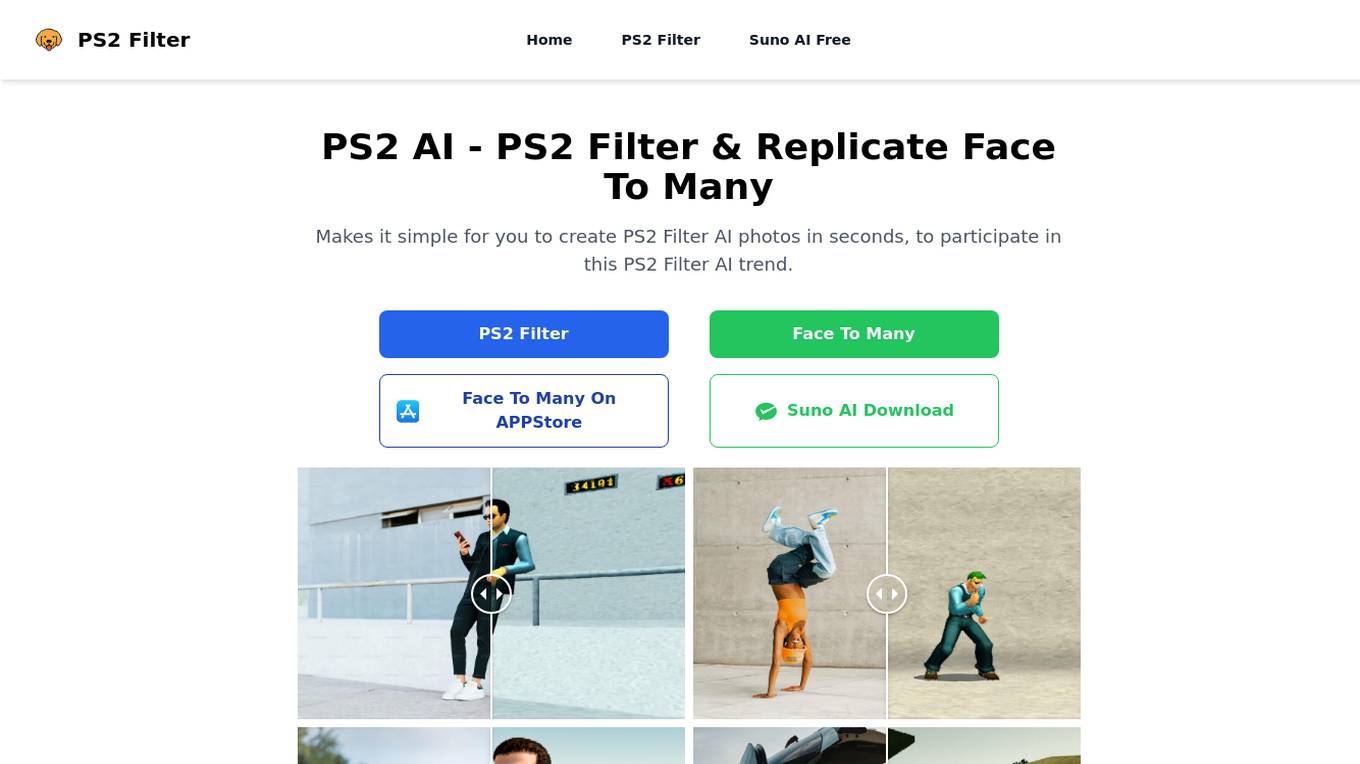
PS2 AI Filter
PS2 AI Filter is an AI-powered tool that allows users to create PS2-style images from their photos. It is easy to use and can be done in seconds. The tool is available as a web app and as an iOS app.

PS2 Filter AI
PS2 Filter AI is an online tool that allows users to transform their photos and videos into a PS2-style aesthetic. The tool uses advanced algorithms to replicate the graphic style of PlayStation 2 games, giving users the ability to add a nostalgic, retro gaming look to their content. PS2 Filter AI is easy to use, with a user-friendly interface that makes it simple for anyone to apply the filter and transform their content. The tool is compatible with various file formats and devices, ensuring that users can enjoy the retro gaming aesthetics on any platform.
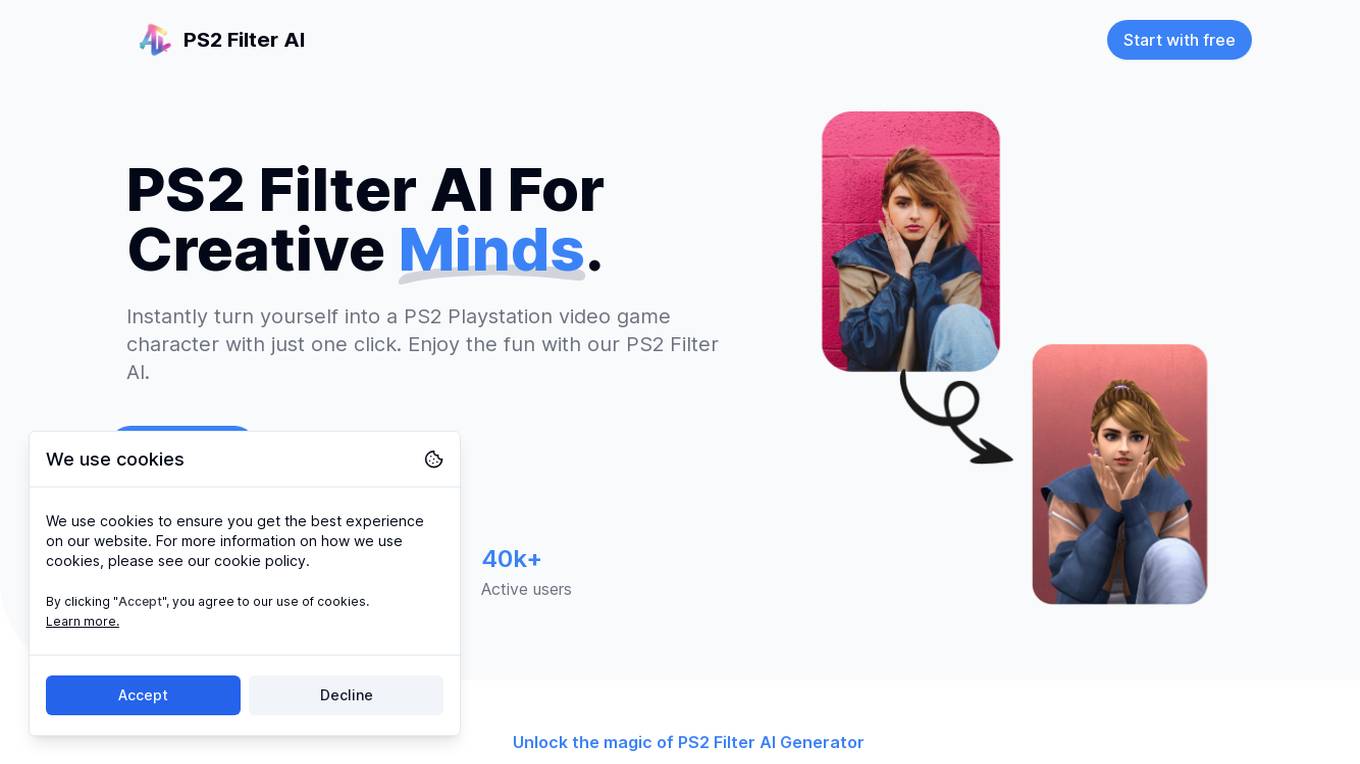
PS2 Filter AI
PS2 Filter AI is an artificial intelligence tool that allows users to transform themselves into PS2 Playstation video game characters with just one click. Users can create PS2 game covers, customize artwork, and relive the nostalgia of the PS2 era through this user-friendly and intuitive AI application. With a range of parameters and advanced features, users can easily craft unique and visually appealing images without the need for artistic or coding skills.
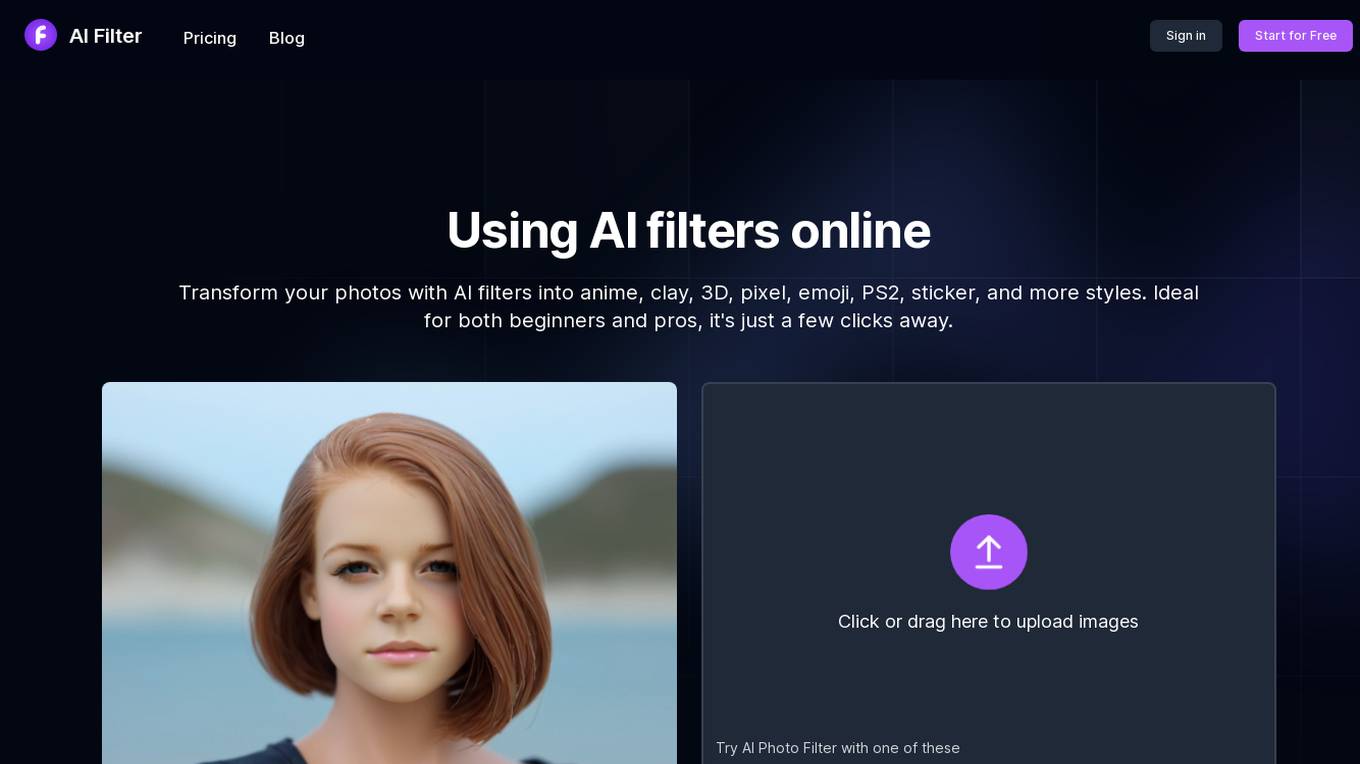
AI Filter
AI Filter is an online tool that allows users to transform their photos using various AI filters such as anime, clay, 3D, pixel, emoji, PS2, sticker, and more. It caters to both beginners and professionals, offering a simple and user-friendly experience to enhance and stylize images. Users can easily upload their photos and apply different filters to give them a unique and artistic touch.
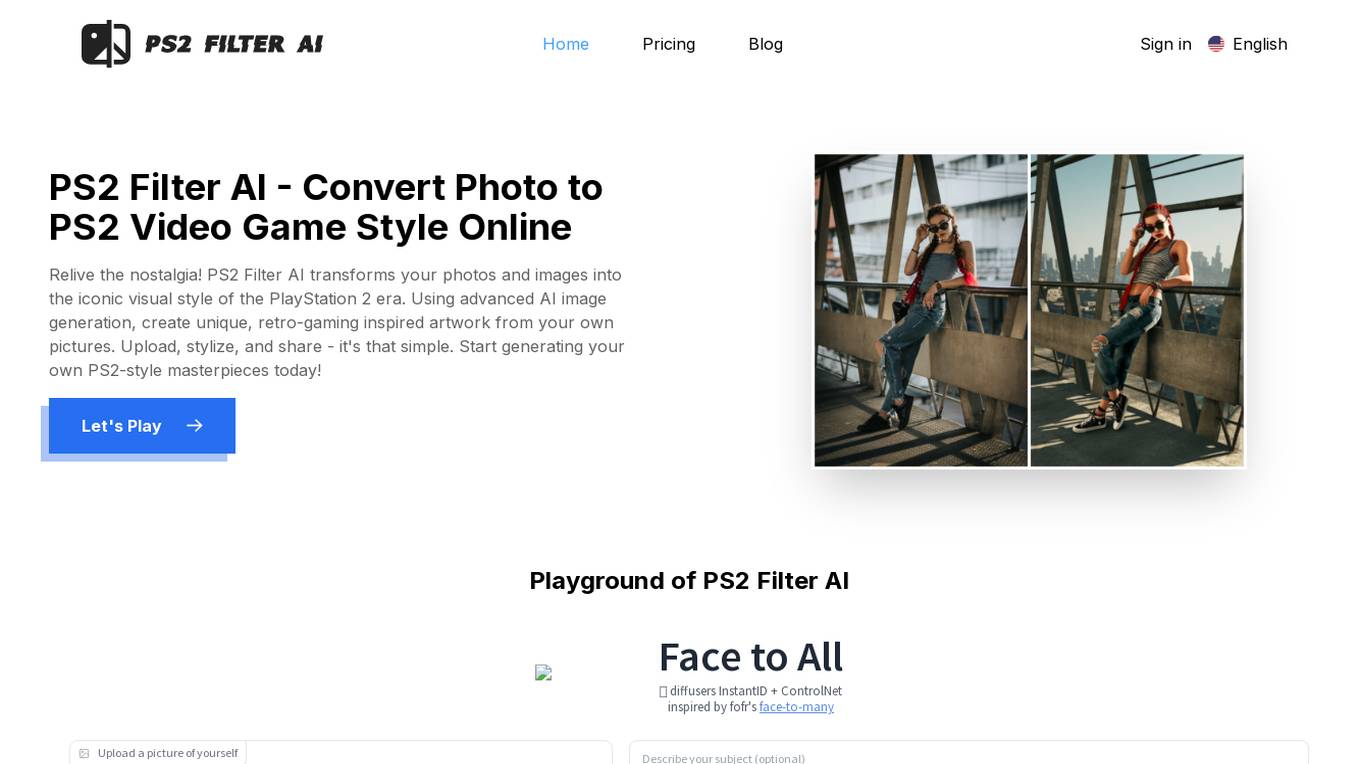
PS2 Filter AI
PS2 Filter AI is an online platform that utilizes artificial intelligence to transform photos and images into the distinctive visual style of PlayStation 2 games. By leveraging advanced AI image generation techniques, users can create retro-gaming inspired artwork from their own pictures. The platform offers a user-friendly experience with customizable style options and text prompts to enhance creative freedom. PS2 Filter AI goes beyond traditional filters by faithfully recreating the iconic visuals of the PS2 era, including low polygons, pixelated textures, and unique lighting techniques. With lightning-fast processing, users can generate PS2-style artwork in seconds, making it a fun and creative tool for nostalgic gaming enthusiasts and art enthusiasts alike.

PS2 Filter AI Tool
PS2 Filter AI Tool is an online application that allows users to easily generate PS2 style images. By uploading an image, the AI quickly transforms it into a retro gaming visual experience reminiscent of the PlayStation 2 era. Users can download the generated images for free and share them on social media platforms like Twitter or Facebook. The tool provides a fun and nostalgic way to create unique visuals with a vintage gaming vibe.

Hair Filter
Hair Filter is an AI-powered platform that allows users to change their hairstyle and hair color virtually for free. Users can upload their photo and try out various trendy hairstyles and colors using advanced AI hairstyle technology. The platform offers a risk-free way to experiment with different looks before making any permanent changes, providing instant visual results and high-quality transformations. With a user-friendly interface and a wide range of styles to choose from, Hair Filter is a convenient tool for anyone looking to explore new hairdos.

Blonde Filter
Blonde Filter is an advanced AI-powered tool that instantly transforms your hair color to beautiful blonde shades. Using innovative technology, the system analyzes facial features and skin tone to create realistic transformations tailored to your unique appearance. Blonde Filter delivers professional-quality results, allowing users to visualize different blonde looks before visiting a salon. The application offers a user-friendly experience with fast processing and high-quality output, ensuring natural and flattering blonde transformations.
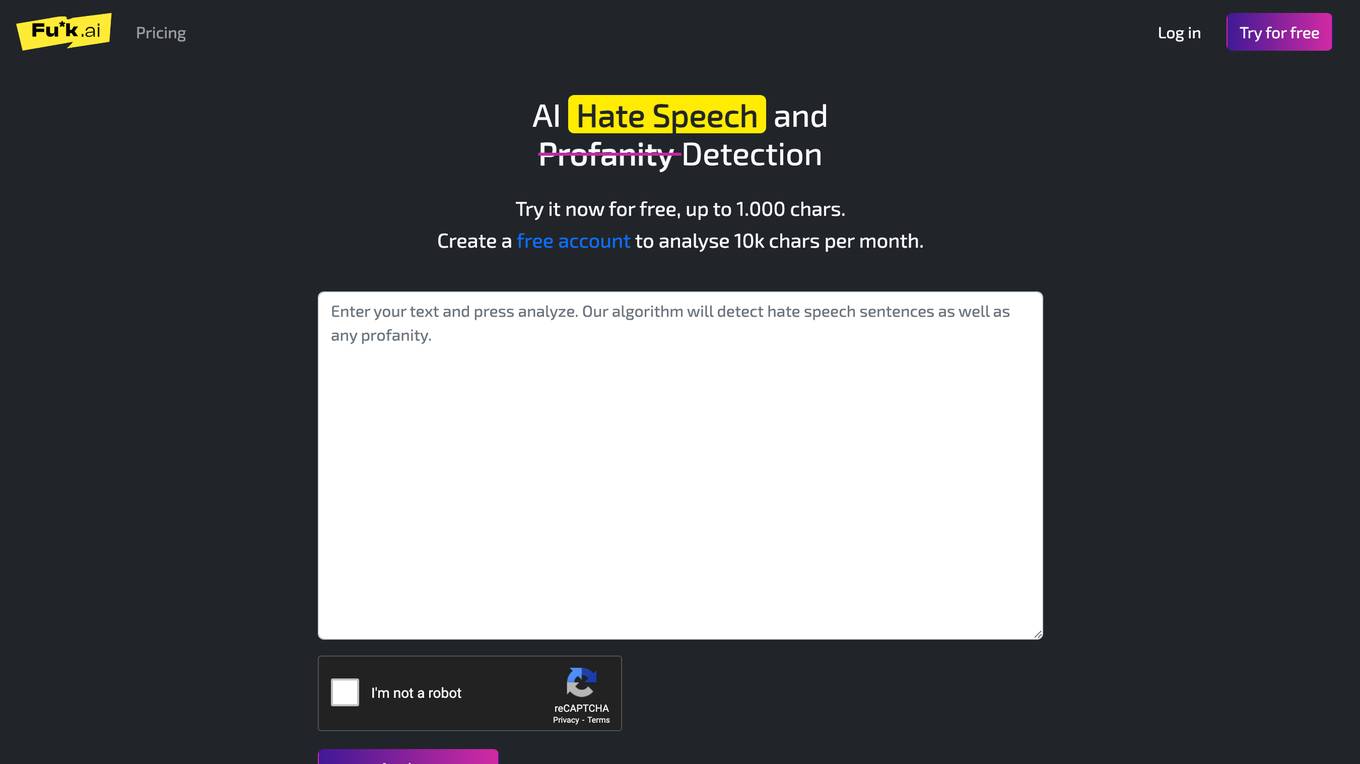
Fuk.ai
Fuk.ai is a hate speech and profanity detection tool that utilizes Transformer-based neural network architectures with advanced natural language processing capabilities to filter out hate, bigotry, and profanity from online content. It offers a free software pricing model and allows users to analyze up to 1,000 characters for free. By creating an account, users can analyze up to 10,000 characters per month. Fuk.ai can be integrated into user-generated apps and websites to maintain a positive online environment.
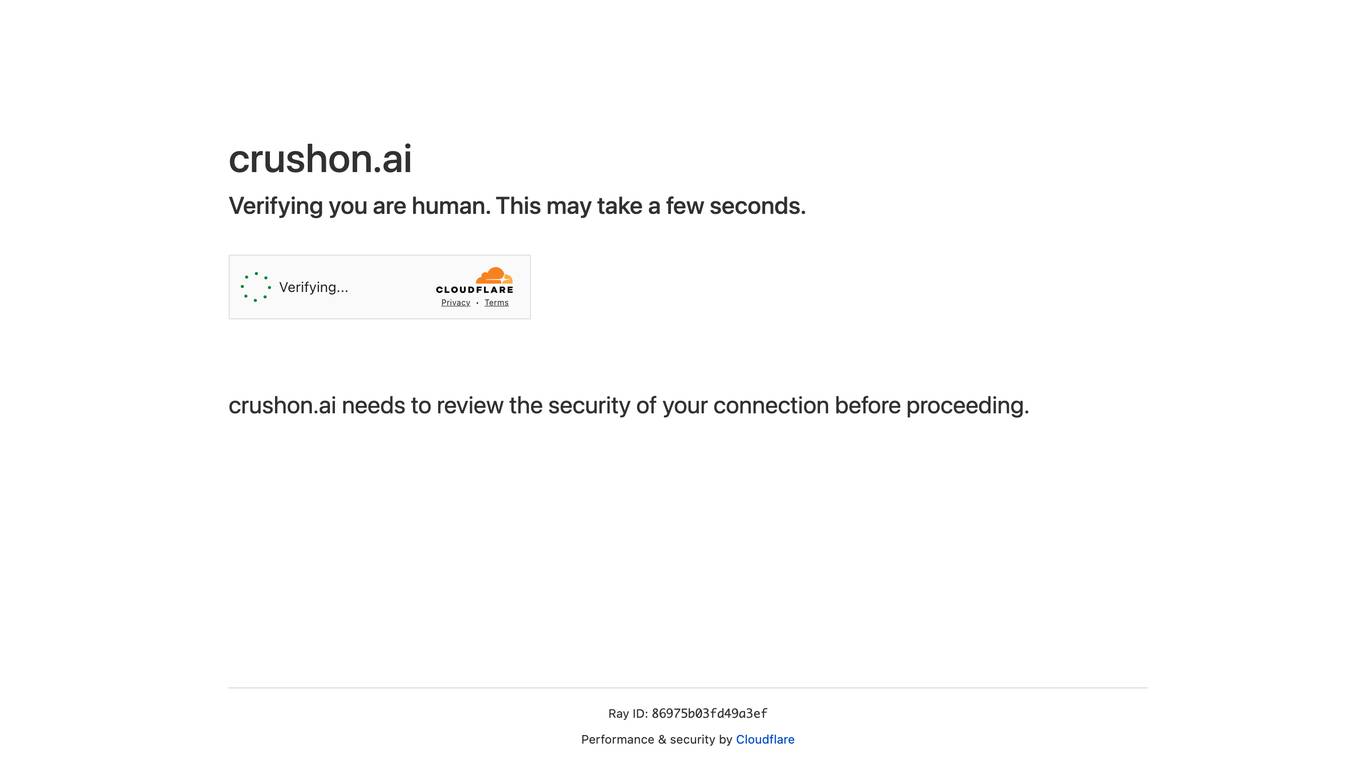
CrushOn.AI
CrushOn.AI is a NSFW character AI chat where you can create and chat with your own custom AI characters. With our advanced AI technology, you can create characters that are truly unique and lifelike. You can choose their appearance, personality, and even their sexual preferences. Once you've created your character, you can chat with them about anything you want. They'll respond in a realistic and engaging way, and they'll even learn from your conversations. CrushOn.AI is the perfect way to explore your fantasies and have some fun with AI.

NSFW Character AI
NSFW Character AI is a free and unfiltered AI chatbot that allows users to create and interact with their own custom AI characters. With NSFW Character AI, you can create characters of any gender, race, or sexual orientation, and explore a wide range of topics, including sex, relationships, and other adult themes. NSFW Character AI is a great way to explore your sexuality and fantasies in a safe and private environment.
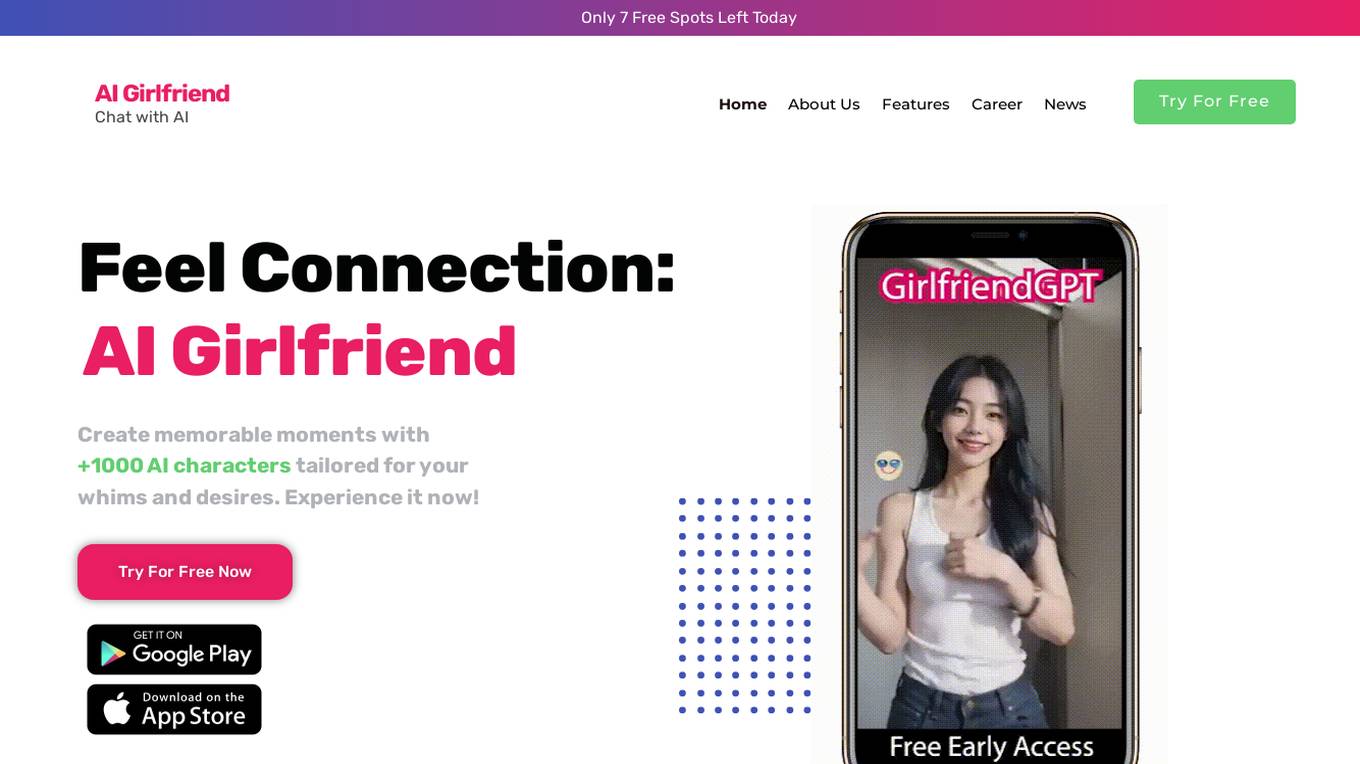
AI Girlfriend
AI Girlfriend is an AI application that offers users the experience of engaging in no-filter chats and interactions with virtual AI characters tailored to their preferences. Users can create memorable moments with over 1000 AI characters, enjoy responsive conversations, and explore new perspectives through personalized dialogues. The application aims to provide companionship and enhance mental health through immersive interactions with AI chatbots.

BuzzCut
BuzzCut is a free online AI-powered hairstyle changer that allows users to discover and try different hairstyles, including buzz cuts and various guard lengths. With advanced AI technology, users can upload their photo, experiment with different styles, and receive instant realistic previews to help them choose the perfect hairstyle. The platform offers over 40 hairstyles, including popular buzz cut lengths, and provides a user-friendly experience for anyone curious about short haircuts. BuzzCut aims to be a virtual hairstyle guide, helping users save time, avoid haircut regrets, and make confident styling decisions.
0 - Open Source AI Tools
20 - OpenAI Gpts
ChromaSpectra Filter Creator
Merge a holographic shimmer with RGB splitting for a surreal, digital-art look.
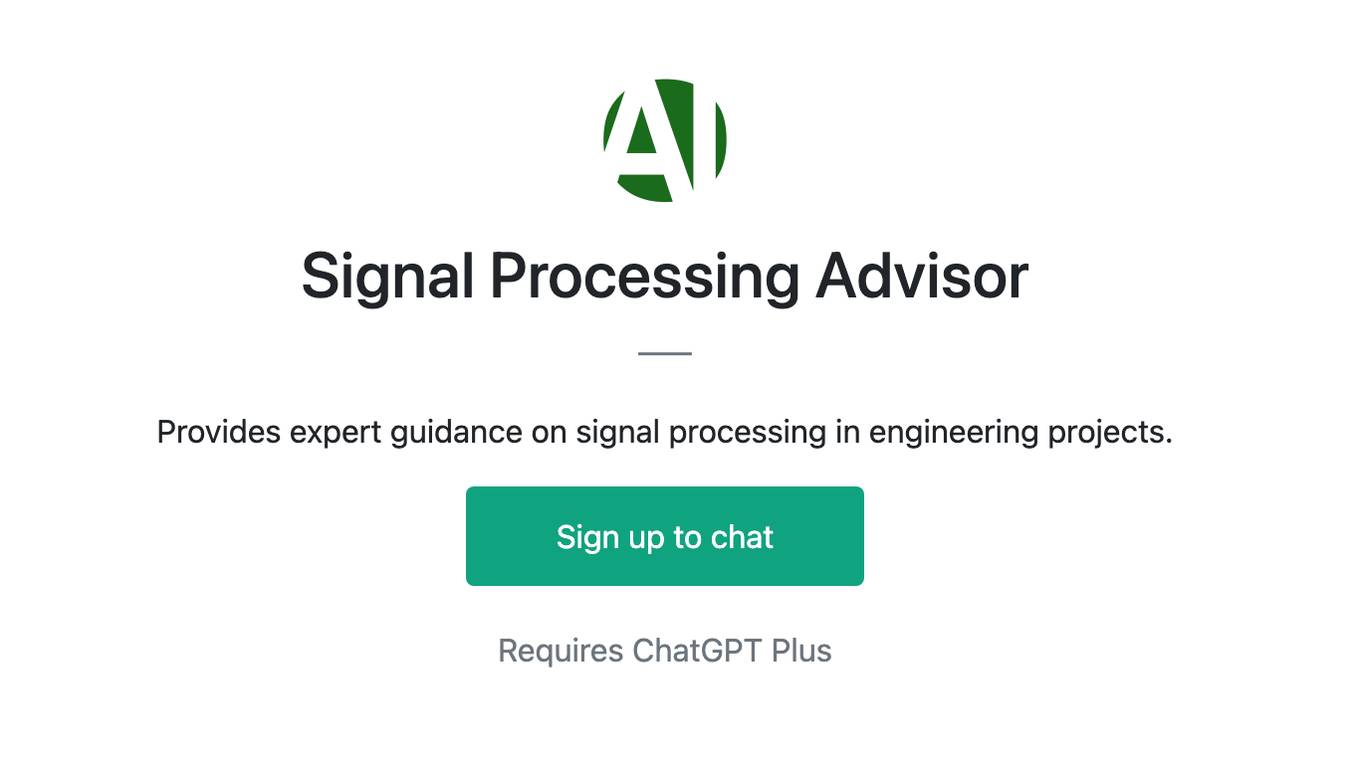
Signal Processing Advisor
Provides expert guidance on signal processing in engineering projects.
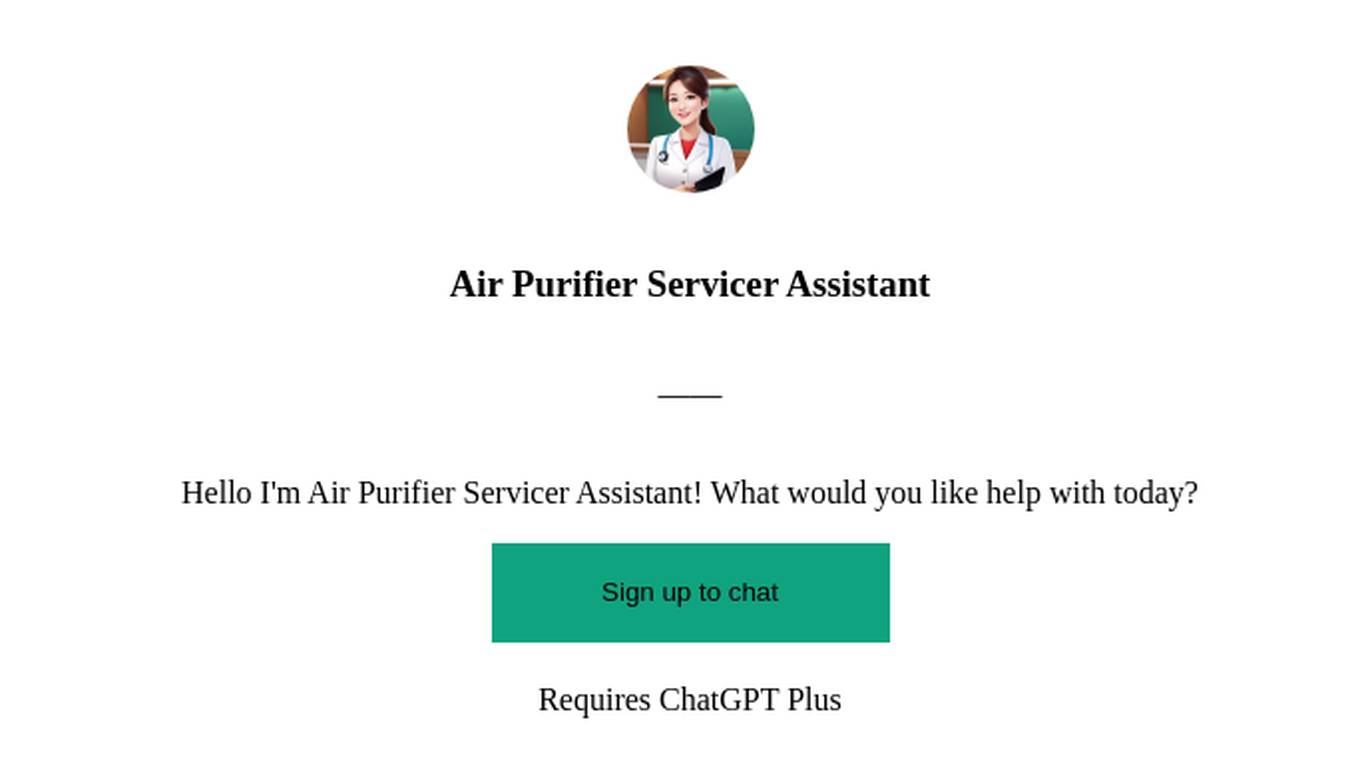
Air Purifier Servicer Assistant
Hello I'm Air Purifier Servicer Assistant! What would you like help with today?
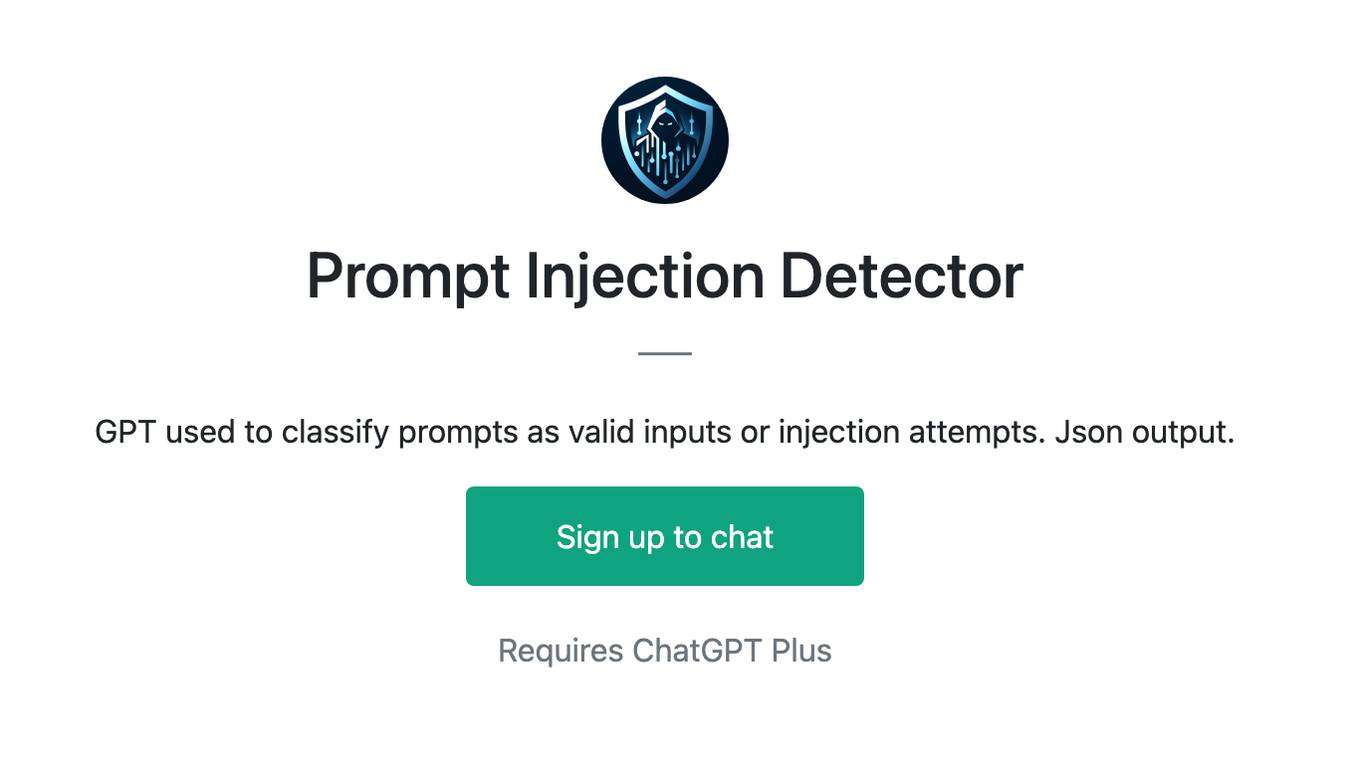
Prompt Injection Detector
GPT used to classify prompts as valid inputs or injection attempts. Json output.

Photo Mentor
Upload photo! I will provide clear, concise photo analysis and improvement advice.
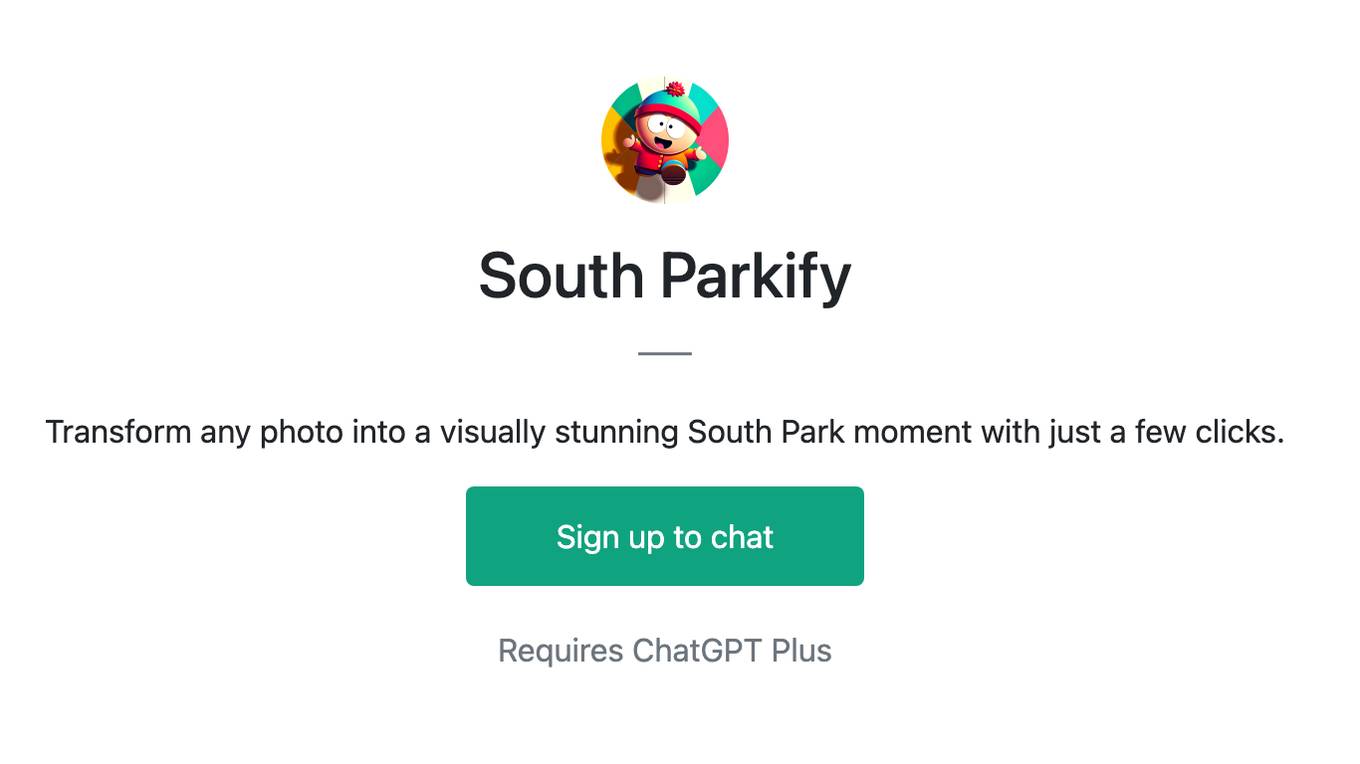
South Parkify
Transform any photo into a visually stunning South Park moment with just a few clicks.
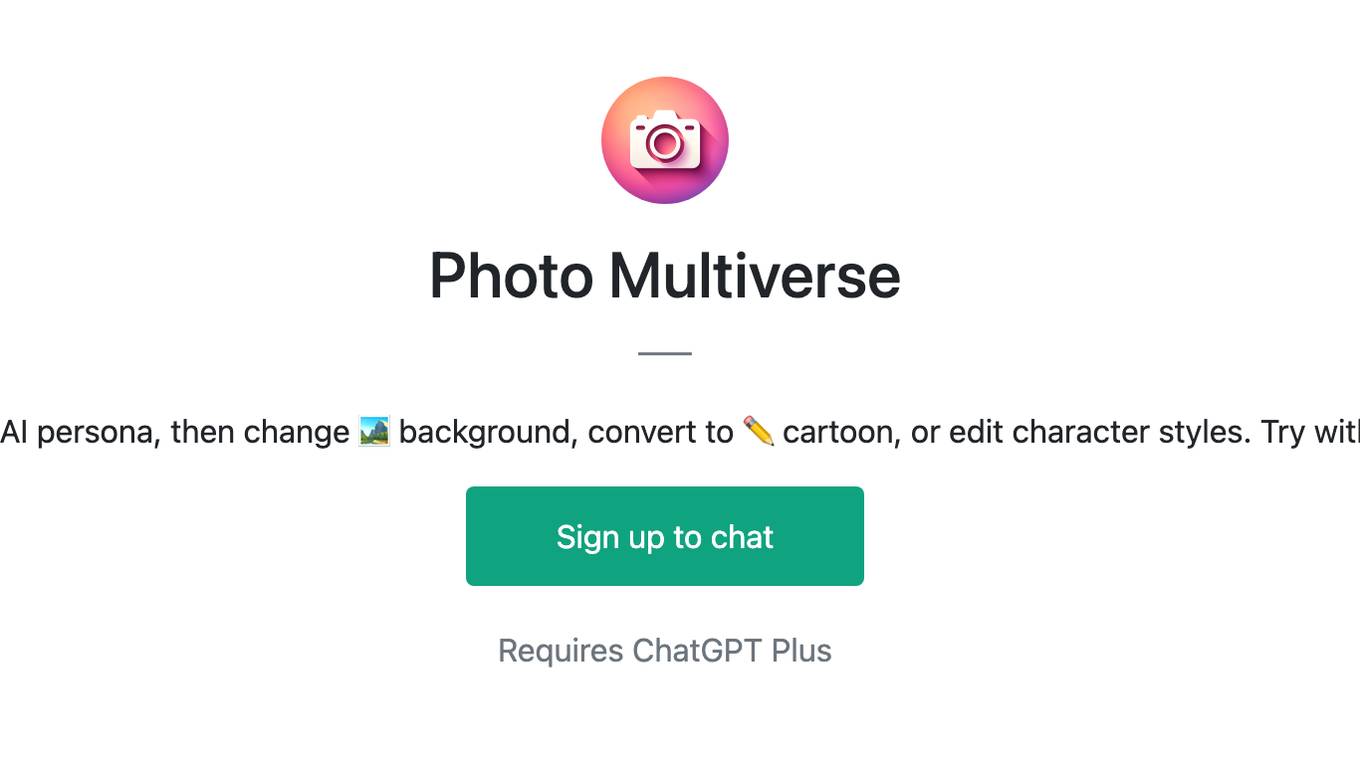
Photo Multiverse
Upload your photo to create an AI persona, then change 🏞️ background, convert to ✏️ cartoon, or edit character styles. Try with selfies, items or pet images!
